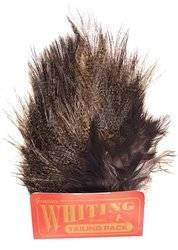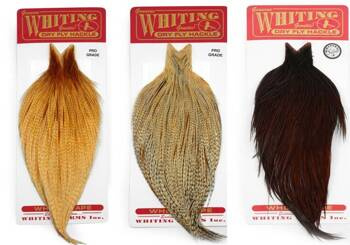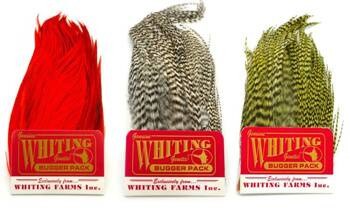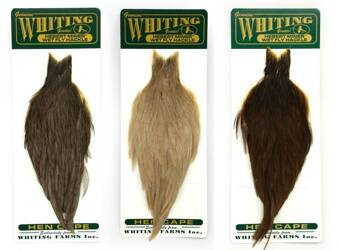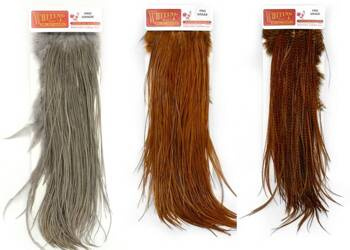Whiting's Olimpic Grading System

THE OLYMPIC GRADING SYSTEM
Whiting's Olympic Grading System was developed to consistently grade capes and saddles across all dry fly product lines. Whiting Farms does not grade from harvest to harvest or “batch to batch”. We do not grade to push up or down pelts to meet certain sales requirements or financial obligations. We do not grade to meet consumer demand. Rather, our grading methodology remains consistent throughout the years and is independent of any bias that would skew the true value of the pelt. When grading our pelts, one rule-of-thumb always stands true: the quality level of the feather is always consistent. What does this mean? It means that each dry fly feather has a supple quill, void of twist, contains dense barbing and is greater than 85% web-free. If a pelt doesn’t meet this core criteria, the pelt is never sold in retail.

Making the Grade
How is a pelt determined to be a bronze, silver, gold or better? Once the quality of the feather is determined to be retail grade (see above), then several factors are observed to categorize each pelt. In summary, a few key elements determine the value of a pelt between bronze, to silver to gold. Factors such as useable feather length, uniformity of feather length, barb stiffness, size range in the entire pelt, stem condition, feather quantity, consistent coloration, and more are all looked at to determine grade. In all, there are more than 25 elements that are taken into consideration when grading a pelt. If a pelt is densely feathered, offers a wide size range and the feathers have long, usable dry fly portions, the pelt will grade out rather high, maybe even a gold or better.





